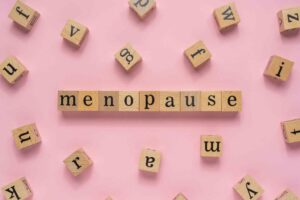As women enter the transitional phase of menopause, hormonal fluctuations can lead to a myriad of physical and emotional changes. While many are aware of common symptoms, the emergence of psychosis during menopause is a less-explored facet that demands our attention. In this blog, we aim to shed light on the phenomenon of menopause psychosis and most importantly, the available menopause psychosis treatments.
Contents
Can Menopause Trigger Psychosis?
 Yes, menopause can potentially trigger psychosis in some individuals. While not a common occurrence, menopause is a complex biological process characterized by hormonal fluctuations, particularly a decline in estrogen levels. Estrogen plays a crucial role in regulating neurotransmitters in the brain that influence mood and cognition. The abrupt changes in hormone levels during menopause can disrupt this delicate balance, potentially leading to mental health challenges.
Yes, menopause can potentially trigger psychosis in some individuals. While not a common occurrence, menopause is a complex biological process characterized by hormonal fluctuations, particularly a decline in estrogen levels. Estrogen plays a crucial role in regulating neurotransmitters in the brain that influence mood and cognition. The abrupt changes in hormone levels during menopause can disrupt this delicate balance, potentially leading to mental health challenges.
Psychosis refers to a state in which an individual experiences a disconnection from reality, often marked by hallucinations, delusions, and impaired thought processes. The exact mechanisms linking menopause to psychosis are not fully understood. Still, it is believed that hormonal changes can impact the brain’s neurotransmitter systems, contributing to mental health disturbances.
It is crucial for individuals going through menopause, as well as their healthcare providers and support networks, to be aware of the potential for mental health challenges. And seek professional guidance if needed.
What Are Some Best Menopause Psychosis Treatments?
Menopause psychosis can be a challenging condition to manage, and treatment approaches often involve a combination of medical, psychological, and lifestyle interventions. It’s essential to work closely with healthcare professionals. They will help to determine the most appropriate treatment plan for an individual’s specific situation. Here are some of the best menopause psychosis treatments:
Medication
- Hormone Replacement Therapy (HRT): This therapy involves supplementing estrogen or a combination of estrogen and progesterone to address hormonal imbalances associated with menopause. This treatment aims to alleviate symptoms and restore a hormonal equilibrium, potentially mitigating psychosis. However, the decision to use HRT should be carefully considered.
- Antipsychotic Medications: For managing specific symptoms of psychosis, antipsychotic medications may be prescribed. These medications act on neurotransmitters in the brain. And, helping to regulate abnormal thought processes and perceptions. The choice of antipsychotic and dosage will depend on the severity and nature of the symptoms. It’s crucial for healthcare providers to closely monitor patients on antipsychotic medications to assess their effectiveness and address any potential side effects.
Psychological Interventions
- Counseling and Psychotherapy: Therapy sessions, such as cognitive-behavioral therapy (CBT), can be instrumental in helping individuals cope with the emotional and cognitive aspects of menopause psychosis. Therapists work with patients to identify and challenge distorted thought patterns, develop coping strategies, and provide a supportive space for expression and understanding.
- Supportive Psychoeducation: Psychoeducation involves providing information about menopause psychosis, its symptoms, and available treatments. Educating individuals and their families about the condition fosters a more informed and understanding support system. It can help reduce stigma, enhance communication, and empower individuals to actively participate in their treatment plans.
Lifestyle Changes

- Healthy Diet and Exercise: Adopting a well-balanced diet rich in nutrients and engaging in regular physical activity contribute to overall physical and mental well-being. These lifestyle changes can positively impact mood, reduce stress, and enhance the effectiveness of other treatment modalities. A holistic approach to health, including proper nutrition and exercise, is essential for managing menopause psychosis symptoms.
- Stress Management Techniques: Menopause can be a stressful life transition, and stress may exacerbate psychosis symptoms. Learning and practicing stress management techniques, such as mindfulness, meditation, and relaxation exercises, can be valuable in minimizing the impact of stress on mental health. These techniques empower individuals to navigate the challenges of menopause more effectively.
Social Support
- Family and Friends: The support of family and friends is crucial during the menopausal transition, especially for those experiencing psychosis. Open communication can foster understanding and empathy, creating an environment where individuals feel comfortable expressing their feelings and seeking help. Involving loved ones in the treatment process helps build a robust support network.
- Support Groups: Joining support groups tailored to menopause or mental health provides individuals with the opportunity to connect with others facing similar challenges. Sharing experiences, advice, and coping strategies in a supportive community can help reduce feelings of isolation and offer valuable insights into managing menopause psychosis.
Regular Monitoring and Follow-up
- Medical Check-ups: Ongoing medical supervision is essential to monitor the effectiveness of treatments and address any emerging health concerns. Regular check-ups allow healthcare providers to assess the overall well-being of individuals experiencing menopause psychosis, make necessary adjustments to treatment plans, and address any potential side effects. Open and transparent communication between patients and healthcare professionals is key to successful long-term management.
It’s important to note that treatment plans should be individualized. And, taking into account the unique circumstances and needs of each person experiencing menopause psychosis is essential. Consulting with a qualified healthcare professional is critical for accurate diagnosis and appropriate management.
What Are The Benefits Of Seeking Menopause Psychosis Treatments?
Seeking menopause psychosis treatments can offer numerous benefits, enhancing the overall well-being and quality of life for individuals experiencing this challenging condition. Here are some key advantages of pursuing appropriate treatments:
- Symptom Relief and Improved Mental Health
Effective treatments, whether through medication, psychotherapy or a combination of interventions, can alleviate the distressing symptoms associated with menopause psychosis. Hallucinations, delusions, mood disturbances, and other psychological symptoms can be addressed. And, leading to an improved mental state and emotional well-being.
- Enhanced Functional Capacity
Managing menopause psychosis allows individuals to maintain or regain their functional capacity. This includes the ability to carry out daily activities, maintain relationships, and participate in work or social engagements.
- Stabilized Relationships
Menopause psychosis can impact relationships with family, friends, and colleagues. Seeking treatment not only helps the affected individual but also fosters understanding and support from their social network. Open communication about the condition and its treatment can strengthen relationships.
- Prevention of Complications
Untreated menopause psychosis can potentially lead to complications such as increased stress, impaired judgment, and a decline in overall mental health. Seeking treatment early can prevent the exacerbation of symptoms and reduce the risk of complications.
- Empowerment and Control
Seeking treatment is an active step toward regaining control over one’s mental health. It empowers individuals to be proactive in managing their condition, fostering a sense of control and self-efficacy. This empowerment can positively impact an individual’s mindset and approach to their overall well-being.
Overall, the benefits of seeking menopause psychosis treatments extend beyond symptom relief. They encompass improved mental health, enhanced functional capacity, long-term wellness, and the empowerment of individuals to actively manage their mental health during this transitional phase.
How Common Is Psychosis In Menopause?
 Psychosis during menopause is relatively uncommon, but it can occur in a subset of women undergoing this natural life transition. Menopause is primarily characterized by hormonal changes, specifically a decline in estrogen levels. While hormonal fluctuations can influence mood and cognition, leading to symptoms like mood swings and irritability, full-blown psychosis is a rare manifestation. The exact prevalence is challenging to determine as there is limited research specifically focused on menopause-related psychosis.
Psychosis during menopause is relatively uncommon, but it can occur in a subset of women undergoing this natural life transition. Menopause is primarily characterized by hormonal changes, specifically a decline in estrogen levels. While hormonal fluctuations can influence mood and cognition, leading to symptoms like mood swings and irritability, full-blown psychosis is a rare manifestation. The exact prevalence is challenging to determine as there is limited research specifically focused on menopause-related psychosis.
Several factors may contribute to the development of psychosis during menopause, including hormonal changes, genetic predisposition, and preexisting mental health conditions. Women with a history of psychiatric disorders may be more vulnerable, and the onset of menopause may exacerbate underlying vulnerabilities.
It’s crucial to emphasize that while psychosis during menopause is uncommon, any significant changes in mental health should be promptly addressed and thoroughly evaluated by healthcare professionals. Timely intervention can lead to effective management and support for those experiencing these challenges during the menopausal transition.
Conclusion
In conclusion, understanding and addressing menopause psychosis is crucial for the well-being of women navigating this transitional phase. By shedding light on the symptoms, causes, and available treatments, we aim to empower individuals and their support networks with knowledge and support. Seeking a combination of medical, psychological, and lifestyle interventions can bring relief, stabilize mental health, and enhance overall quality of life.
It’s essential to foster open conversations, reduce stigma, and build a community that supports women through this transformative journey. With proper treatment, communication, and a holistic approach to wellness, individuals can navigate menopause psychosis with resilience. If you are facing menopause-related issues, menopause treatment at HerMantra can help. Book your free trial online menopause treatment session now.


